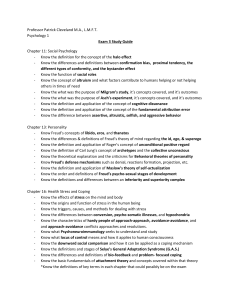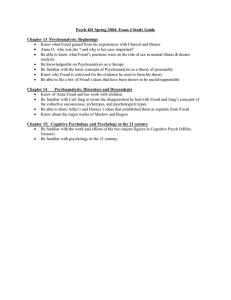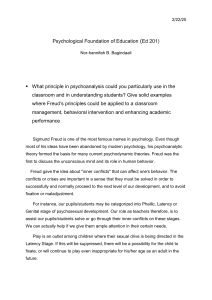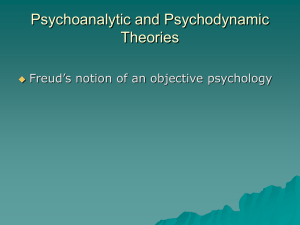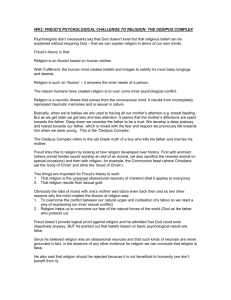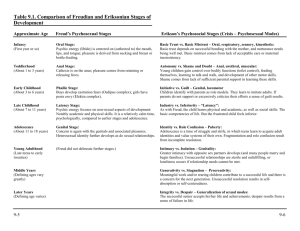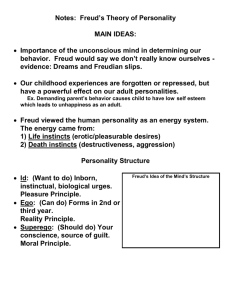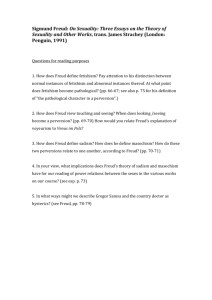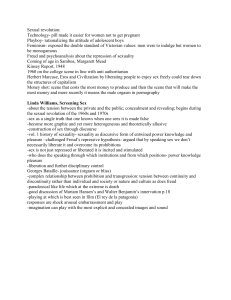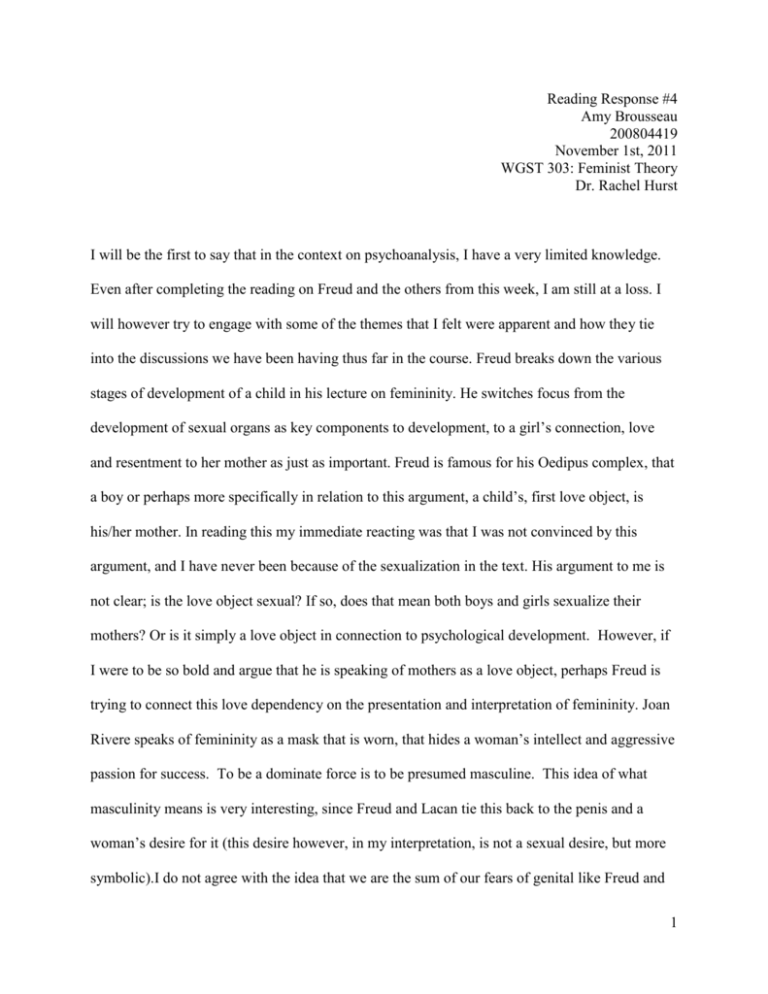
Reading Response #4
Amy Brousseau
200804419
November 1st, 2011
WGST 303: Feminist Theory
Dr. Rachel Hurst
I will be the first to say that in the context on psychoanalysis, I have a very limited knowledge.
Even after completing the reading on Freud and the others from this week, I am still at a loss. I
will however try to engage with some of the themes that I felt were apparent and how they tie
into the discussions we have been having thus far in the course. Freud breaks down the various
stages of development of a child in his lecture on femininity. He switches focus from the
development of sexual organs as key components to development, to a girl’s connection, love
and resentment to her mother as just as important. Freud is famous for his Oedipus complex, that
a boy or perhaps more specifically in relation to this argument, a child’s, first love object, is
his/her mother. In reading this my immediate reacting was that I was not convinced by this
argument, and I have never been because of the sexualization in the text. His argument to me is
not clear; is the love object sexual? If so, does that mean both boys and girls sexualize their
mothers? Or is it simply a love object in connection to psychological development. However, if
I were to be so bold and argue that he is speaking of mothers as a love object, perhaps Freud is
trying to connect this love dependency on the presentation and interpretation of femininity. Joan
Rivere speaks of femininity as a mask that is worn, that hides a woman’s intellect and aggressive
passion for success. To be a dominate force is to be presumed masculine. This idea of what
masculinity means is very interesting, since Freud and Lacan tie this back to the penis and a
woman’s desire for it (this desire however, in my interpretation, is not a sexual desire, but more
symbolic).I do not agree with the idea that we are the sum of our fears of genital like Freud and
1
Lacan argue. However is Freud’s writing I do sense that our understanding of our genital can be
a source of confusion and frustration, but I do not think we are at its mercy. In regards to
questions, there is one thing that I keep coming in contact with; the question of woman as
problem or problematic. In many of the reading this week it would seem as though what is a
man is answered, but what a woman is, is contained within a labyrinth of symbols, meanings,
dissembling’s and even more that I cannot think of. I begin to wonder if this is in fact ‘true’.
Women are what is socially created about them and perhaps this is the root of our privileges and
oppressions. We become fixated on solving the problem of ‘us’ we are thus distracted from our
real purpose. This purpose in my eyes is the deconstruction of patriarchy. If psychoanalysis is in
anyway useful maybe this is how it can be.
2

